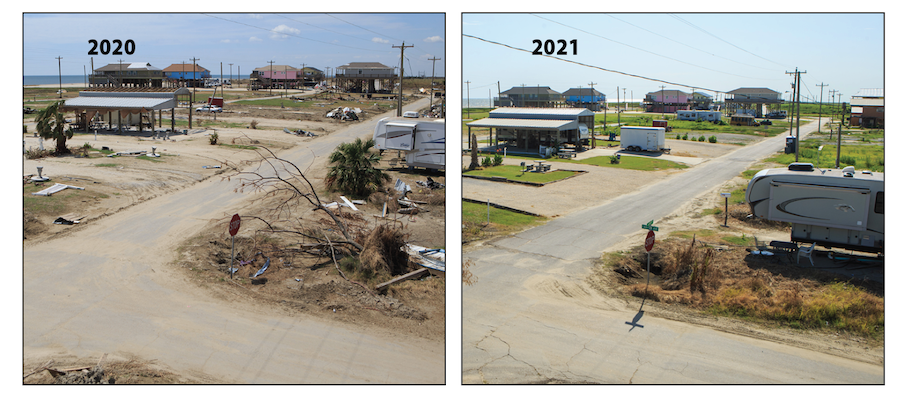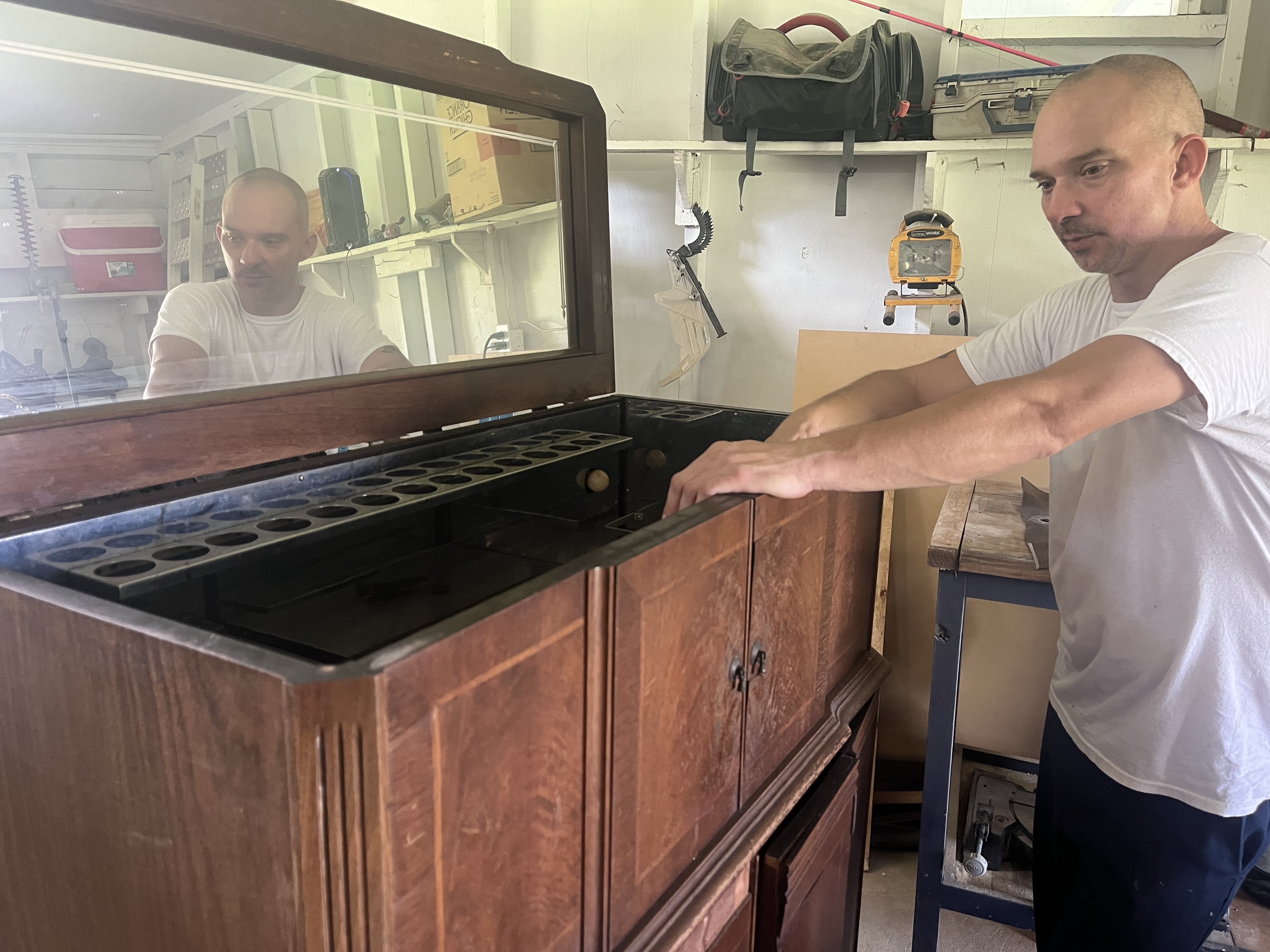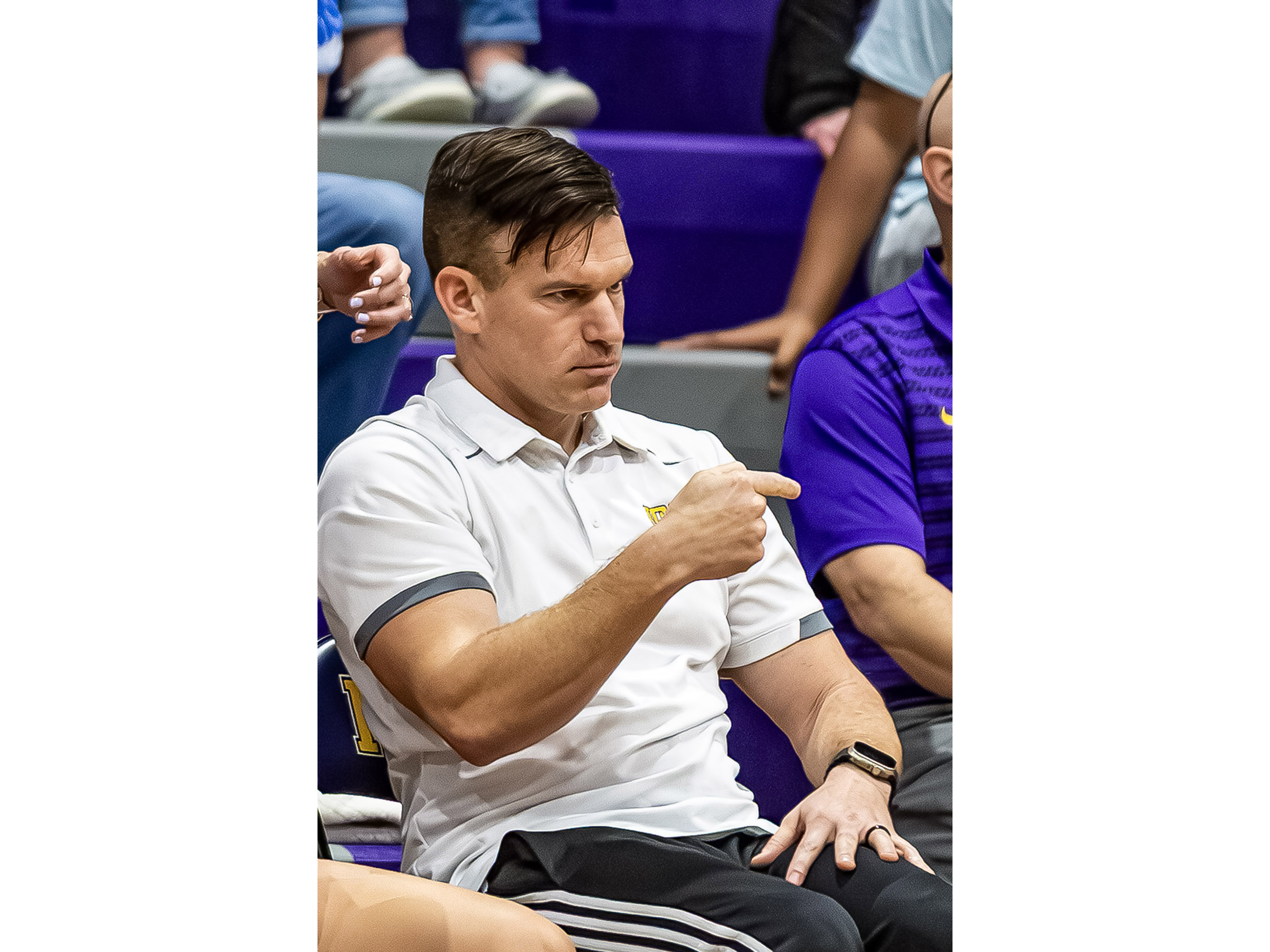One year later: Residents still reeling from lingering emotional trauma
Published 9:42 pm Thursday, August 26, 2021

- Left: Holly Beach after Hurricane Laura made landfall on Aug. 27, 2020. Right: What that same spot looks like one year later. (Rick Hickman / American Press)
Before the current disturbance in the Gulf, some Southwest Louisiana residents were still reeling from lingering emotional trauma after the Aug. 27, 2020, arrival of Hurricane Laura. Free help is now available for individuals to understand responses that follow disaster and cope with those feelings, thoughts and behaviors.
“It’s OK to not be OK,” said Ryan Clemons, a crisis counselor. “You’re not the only one. These feelings are common and could result in sleeping too much or too little, not eating enough, eating too much, avoiding people, feeling moody, anger, being short with others, trouble concentrating, trouble at work, feeling sad or depressed or feeling anxious.”
Clemons is one of the crisis counselors with Louisiana Spirit Crisis Counseling, which is overseen by the Louisiana Office of Behavior Health. The program is federally funded and specifically for Hurricane Laura survivors. The program was created initially for first responders.
Counselors such as Clemons provide short-term, face-to-face assistance for individuals, groups and employers in recovering from the effects of disasters through community-based outreach and psycho-educational services. The goal is to help survivors and communities return to pre-disaster levels of emotional wellbeing.
“Even though it’s a year after Hurricane Laura, this one-year mark could cause feelings to resurface, Clemons said. “Current weather reports can bring up feelings associated with trauma. Even preparing for hurricane season back in June could have caused issues to come to the forefront.”
To reach Louisiana Spirit Crisis Counseling, call 1-866-310-7977, text REACHOUT to 741741 or go to the website. Local behavioral health providers are available in this region by calling 1-866-698-5304. After making contact, counselors may schedule to visit individuals at home or in a public place. Counselors also conduct educational seminars at the request of employers. The counselors in this program have been successful in teaching self-reliance tools that help individuals build resiliency, reduce stress and achieve a healthy work-life balance.
“I’ve seen frustration, negative thinking. People feel overwhelmed. Some are hopeless and afraid,” Clemons said. “In moments of distress, it’s important to stop and take a moment and just breathe. Mainly, people just want to be heard.”





